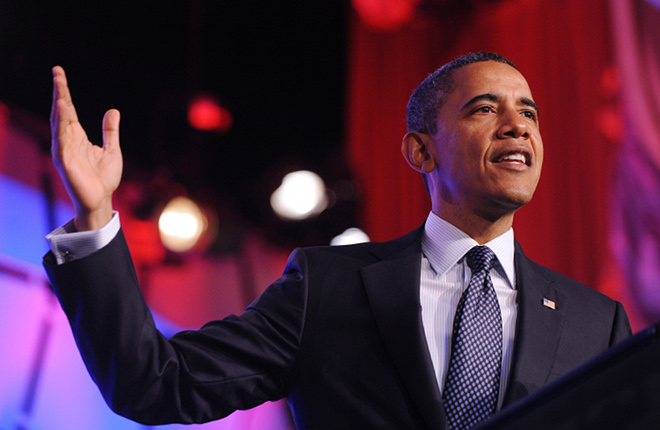President Obama, who is touting the auto bailout at every turn in his campaign debut this week, got some more good news from Detroit on Monday with the release of the new Fortune 500 list. At No. 5 on the annual ranking of America’s largest companies: General Motors.
While the job market and overall growth are still weak, GM and the auto industry have proved a rare bright spot. And the Obama campaign is putting its success front and center.
“Together, we’re fighting our way back,” Obama said at a campaign kickoff rally in Virginia on Saturday. “When some wanted to let Detroit go bankrupt, we made a bet on American workers, on the ingenuity of American companies. And today, our auto industry is back on top of the world.”
Supporters greeted the latest news with similar enthusiasm: “GM now ranks 5th in the Fortune 500 list,” Maryland Gov. Martin O’Malley (D), chairman of the Democratic Governors Association, tweeted. “President Obama, thank you for believing in American manufacturing.”
There are several reasons the auto rescue is getting such disproportionate attention versus other, arguably more crucial measures, like the stimulus and the president’s use of President Bush’s TARP funding to stabilize the financial system. Some of them are obvious: TARP is unpopular, and the money went to the Wall Street interests Obama routinely decries in speeches, and the stimulus has also become politically toxic after years of Republican attacks.
But the most important aspect of the auto bailout is that it takes voters back to the days of late 2008 and 2009, when the economy was in an actual touch-and-go crisis — not just a period of sluggish growth. There’s simply no way to discuss it without invoking the worst of the recession and financial collapse that Obama inherited. And reminding voters of that collapse is priority one, two and three right now, with a huge chunk of Obama’s new $25 million ad buy emphasizing the conditions the president inherited at his swearing-in.
It also puts Romney in a tough spot, who has had difficulty articulating his take on the auto bailout with any kind of coherence. Romney spokesman Eric Fehrnstrom drew a round of mockery from Democrats after saying that the White House simply followed Romney’s advice in putting car companies through a managed bankruptcy, a claim that sidesteps Romney’s refusal to endorse the billions of dollars in government loans that made that bankruptcy possible without destroying the companies in the process.
On offense, the bailout thus offers up another important opportunity to promote the Obama camp’s messaging on Romney: it touches on their attacks on his Bain Capital days, which they say resulted in too many layoffs in order to benefit wealthier investors. The Obama campaign, not surprisingly, are attacking Romney ahead of his trip to Ohio on Monday, one of the states most affected by the auto industry.
“Mitt Romney’s decision to hold an event today at a GM supplier in Ohio highlights how, if he’d had his way, the American auto industry and the more than a million jobs it supports would cease to exist today,” campaign spokeswoman Lis Smith said in a statement. “GM and Chrysler are in existence, creating jobs, and posting some of their most profitable quarters in history because President Obama bet on American workers. The real question is whether Mitt Romney — at his economy-focused event today — will explain to Ohioans why he opposed saving an industry that is responsible for one out of eight jobs in their state.”






